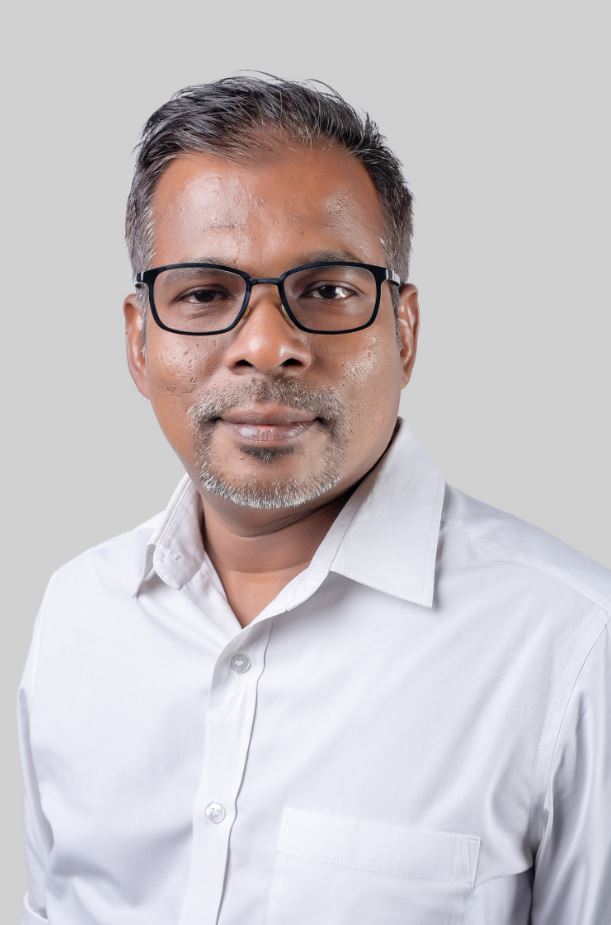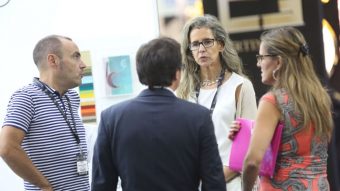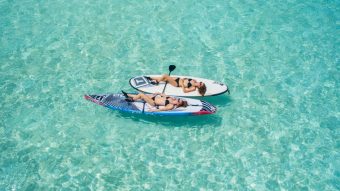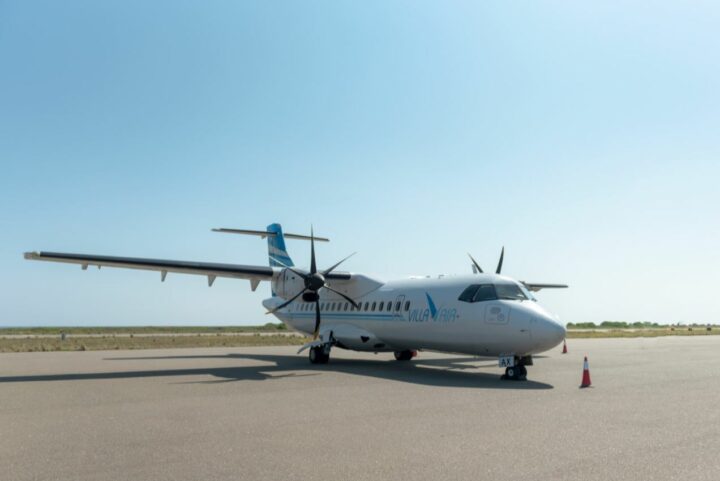
An Issue of Connectivity: Abdulla Nashid, Managing Director, Flyme
When tourism was introduced in the Maldives some forty years ago, guests’ transfers were on speedboats as most of the tourist resorts were located in Malé Atoll and close by region. But with the flourishing of the industry to peripheral atolls, one of the biggest challenges came as an absence of convenient and efficient transfer facilities for tourists.
While the aviation sector in the Maldives comprises of domestic airline and seaplane operations; new players have emerged, further strengthening aviation passenger movements. Flyme, operated by Villa Air, has been in service since 2011.
In this third of the four-part series, we feature an exclusive interview with Abdulla Nashid, Managing Director, Flyme.
Hotelier Maldives: Celebrating ten years of operations, what were the major challenges to operating a privately-owned airline? And how have you overcome the obstacles, and turn a positive spin on the operations?
Abdulla Nashid: Villa Air was formed with a long-term vision by the Villa Group’s Chairman, Hon. Qasim Ibrahim to offer an affordable and convenient transportation option for locals and tourists. Ever since we have relentlessly been working towards achieving this goal. However, the road has been far more challenging than anyone had anticipated.
Our operations started from South Ari Atoll—the location of several tourist resorts and numerous inhabited islands. It was the first time in Maldives’ history to welcome the operations of a privately-owned airline and airport. The benefits far outnumbered the challenges; just imagine the number of employment opportunities it brought about in the aviation sector alone.
Our operations gave locals and tourists a cheaper and more flexible means of transportation. But it also brought about an amazing lifestyle change for the locals in the area—the purpose and thrill of getting up every day to go to a job that they enjoy and earn a decent income. The hard part, though, was the unimaginable challenges and obstacles in our way; some that were unavoidable, and some which could have been.
It takes immense effort and time to groom develop professionals in the aviation industry; the industry requires a certain discipline and precision, which were unfamiliar to new recruits. But I am proud of our tireless efforts to create some of the best personnel in the industry, “and have well-paid off.” Today we have an outstanding team carrying out our tasks with dedication and excellence.
Issues with recruitment were mostly inevitable, however, some of the obstacles we faced could have been avoided with the proper support of the government. For a privately-owned entity to prosper, it is important to have solid long-term strategies and goals—which we have been following since our inception. However, some of our goals were not aligned with the government’s policies, which shifts with the political scene in the country.
Till 2015, we operated to nine destinations, but our operations have since trickled down to two destinations. Maamigili Airport—home of Flyme—earlier operated as an international airport, which today is not the case. Such uninformed and immature decisions by the government is a challenge to attract foreign investments, which hindered the growth of Villa Air and Villa Airport.
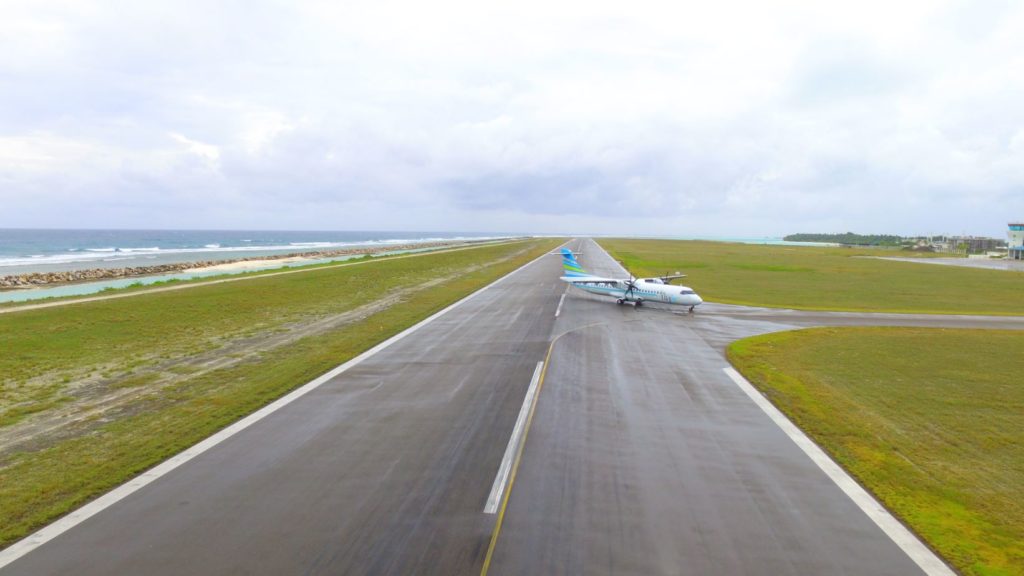
Aside from this, the government also needs to have long-term plans for the development of professionals in the industry. We can increase flights and expand our operations if we get well-trained staff; only then, can we lower the airfare and increase efficiency, which I know, is what is expected by the public as well as the government. Credit is due to our very hardworking and unrelenting team, that even with an unthinkable number of challenges, we have come this far.
HM: Flyme began operations with wheel-based aircraft and later introduced operations of the “Flying Whaleshark”—a Cessna Caravan amphibious, which unfortunately did not last long. Despite this, what are your policies behind the introduction of introducing seaplane operations with the acquisition of four Twin Otters?
AN: In the Maldives, the experience of flying on a seaplane is a different and unique experience compared to other parts of the world; we have the most breath-taking views and scenery. Unfortunately, from 2014 to 2018, we had to keep our seaplane parked due to difficulties in acquiring a base of operations at Velana International Airport; we eventually had to sell the aircraft in 2018. In contrast, we currently have received positive response from MACL to allocate a base of operations at VIA for our seaplanes.
For the Twin Otters, our main strategy is to provide acceptable services for the passengers. Yes, the competition will be there and we will work with them to have a strong foothold in the industry. We always welcome healthy and fair competition and are more than happy to collaborate with other operators to give the best service we can.
HM: What are some of the current challenges to your expansion plans for both the domestic and tourism sector?
AN: The aviation industry requires a solid expansion plan and proper policies for airlines to provide a more efficient and effective services. As more tourist arrivals mean more workload for everyone involved; and for this to succeed, we need a more commercial and efficient operation at the airports—especially in terms of keeping up with timelines—On-Time Performance (OTP). Even with the current traffic, our planes have to stay in the air, 2 to 3 times the sector flight time, due to ATC congestion; a huge cost for us and an inconvenience for our passengers.
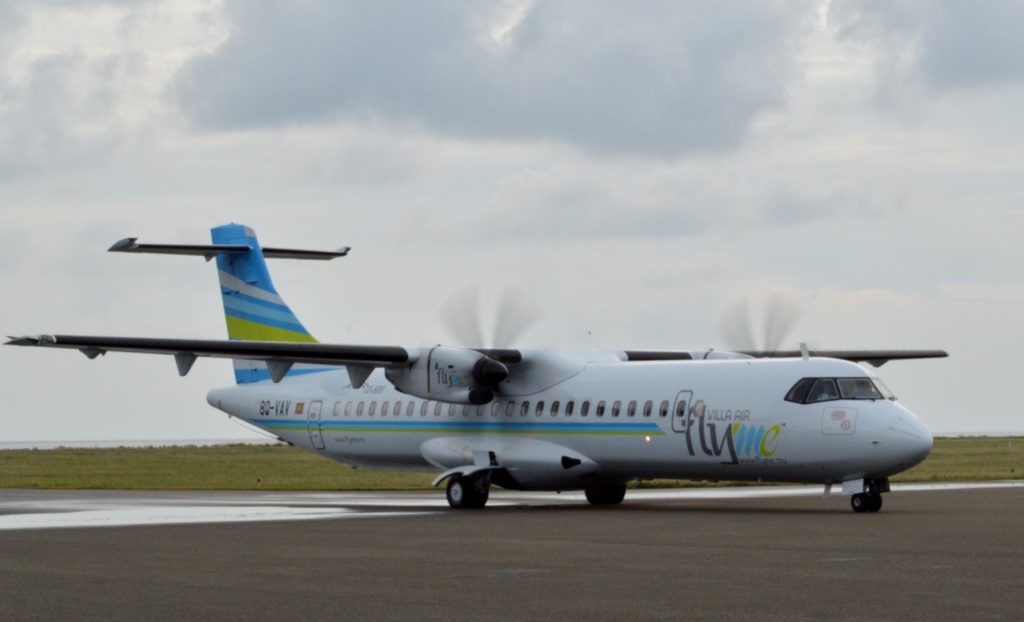
HM: How has the increase in the connectivity and the augmented competition in the industry impacted your company?AN: There are pros and cons to every competition. We lost a good number of our very skilled staff for our competitors. It was disheartening as we invested a lot of time and energy in building and developing them. I know it cannot be averted, but it has not hindered our resilience and determination to provide the best service we possibly can.
Part I – AUM Fawzy, Trans Maldivian Airways
Part II – Mohamed Rizvi, Managing Director, Maldivian



